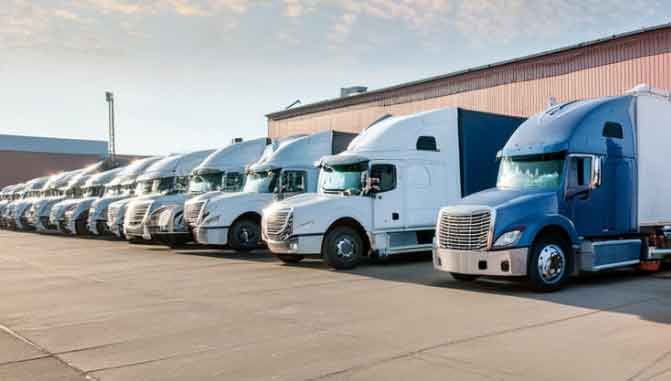Freight Transport
Freight Transport: The Backbone of Global Trade
Freight transport plays a vital role in the global economy by facilitating the movement of goods and raw materials across vast distances. From the food we eat to the clothes we wear, almost everything we consume has been transported by various modes of freight transport. In this article, we will explore what freight transport is, its significance, and the various modes used to transport goods worldwide.
What is Freight Transport?
Freight transport refers to the movement of goods and commodities from one location to another. It involves the physical transportation of cargo, whether by land, sea, air, or a combination of these multi-modal options. Freight transport is essential for ensuring the availability of goods in markets, supporting international trade, and driving economic growth.
Freight Transport Significance:
- Global Trade: Freight transport enables the exchange of goods between countries, fostering international trade and economic development. It connects producers, manufacturers, and consumers across different regions, allowing businesses to access new markets and consumers to enjoy a wide range of products.
- Supply Chain Efficiency: Efficient freight transport systems contribute to smooth supply chain operations. Timely and reliable delivery of goods is crucial for businesses to meet customer demands, maintain inventory levels, and minimize production disruptions. Effective freight transport helps streamline the supply chain process, reducing costs and improving overall operational efficiency.
- Job Creation: The freight transport industry is a significant source of employment. It encompasses various roles, including truck drivers, pilots, maritime personnel, logistics coordinators, and warehouse workers. These jobs support millions of individuals worldwide, providing livelihoods and contributing to local and national economies.
Modes of Freight Transport:
- Road Transport: Road transport is one of the most common modes of freight transport, particularly for shorter distances. It involves the use of trucks, vans, and other vehicles to transport goods on paved roads. Road transport offers flexibility, accessibility, and door-to-door delivery options, making it suitable for small shipments, perishable goods, and last-mile deliveries.
- Rail Transport: Rail transport is widely used for long-distance freight transport, especially for bulky or heavy goods. Trains can carry large volumes of cargo and are more fuel-efficient than trucks. Rail transport is often favored for transporting commodities such as coal, grains, and ores over extensive networks. It also serves as a crucial link between seaports, manufacturing centers, and inland destinations.
- Maritime Transport: Maritime transport involves the shipment of goods via ships and vessels across oceans, seas, and waterways. It is the primary mode for international trade, allowing large quantities of goods to be transported efficiently. Container ships are commonly used, providing secure and standardized transport of goods in shipping containers. Maritime transport is ideal for bulky goods, raw materials, and long-haul journeys.
- Air Transport: Air transport is the fastest mode of freight transport and is commonly used for high-value and time-sensitive shipments. It enables rapid global connections and is often preferred for perishable goods, pharmaceuticals, electronics, and other time-critical items. Air cargo is typically transported in dedicated cargo planes or through the belly holds of passenger aircraft.
Freight Transport Summary:
Freight transport is the lifeline of global trade, facilitating the movement of goods across vast distances. It plays a pivotal role in supporting economic growth, ensuring the availability of goods, and connecting businesses and consumers worldwide. Understanding the various modes of freight transport, their strengths, and their suitability for different types of goods is crucial for optimizing supply chains and maintaining efficient logistics operations in today's interconnected world.
TLI Insights
Get the latest logistics insights and tips from TLI's award-winning team. Stay ahead in transportation planning.
Questions? Email us at marketing@shiptli.com




